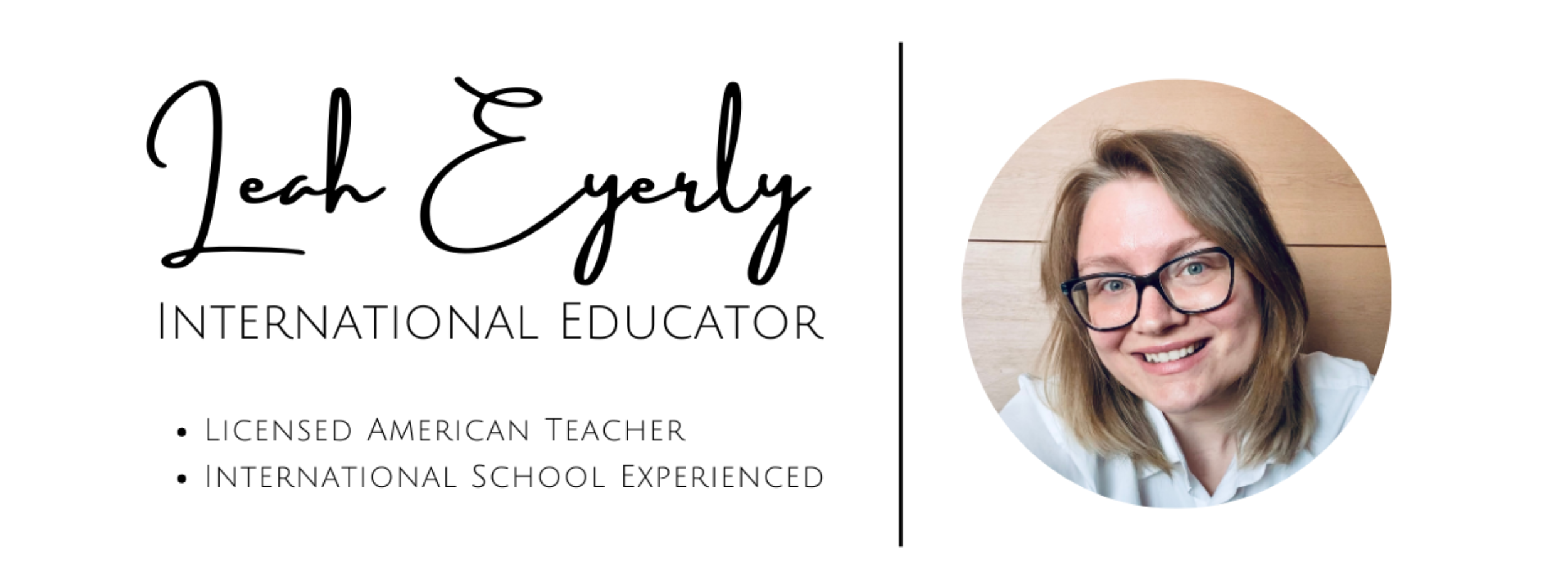Hello, my name is Leah and I am an international teacher in South Korea. My teaching career began informally, but organically evolved while living and working abroad. I attained my certification during the pandemic and am well versed in online-learning and the possibilities of a digitally connected world.
Educational Background
I have an undergraduate degree in History and Political Science from the University of Oregon and completed training in teaching English as a foreign language. I hold a graduate certificate from Moreland University and am currently pursuing a Master’s degree in Learning Design and Technology. My teaching career began with two years in South Korea, where I taught English as a foreign language. For the past three years, I have been teaching with a US teaching license at an accredited international school in South Korea, bringing a global perspective to my educational practice.
Teaching Methods
In my teaching practice, I utilize the International Primary Curriculum (IPC) and International Middle Years Curriculum (IMYC) to provide a comprehensive, globally-minded education. These curricula emphasize thematic, inquiry-based learning with a focus on developing key skills across subjects through interdisciplinary connections. By fostering collaboration and creativity, I encourage students to work together and think critically as they explore topics, solve problems, and showcase their learning. The IPC and IMYC’s emphasis on personal goals, international-mindedness, and reflective practices aligns with my commitment to creating an engaging, student-centered classroom that promotes both individual growth and teamwork.
In my approach to teaching, I prioritize the development of learners’ executive functioning skills, such as self-accountability, time management, and organization. I believe that while student-led inquiry is crucial for fostering curiosity and ownership of learning, students still require a solid foundation to build from. By providing scaffolding—such as clear organizational strategies and goal-setting frameworks—I ensure that students can navigate their learning process independently, making informed decisions and taking responsibility for their progress. This balance allows them to experience both the structure they need and the freedom to explore.
Assessment Methods
I believe in a holistic approach to assessment, one that values individual growth and skill development over purely numerical metrics. Working with diverse students from various cultural backgrounds and varying levels of English language proficiency requires assessments that are flexible and inclusive. I focus on measuring progress toward individual goals alongside content objectives, ensuring that each learner’s unique journey is recognized. This approach allows students to demonstrate their understanding and skills in ways that are meaningful to them, fostering a sense of achievement and personal growth that transcends traditional grading systems.
